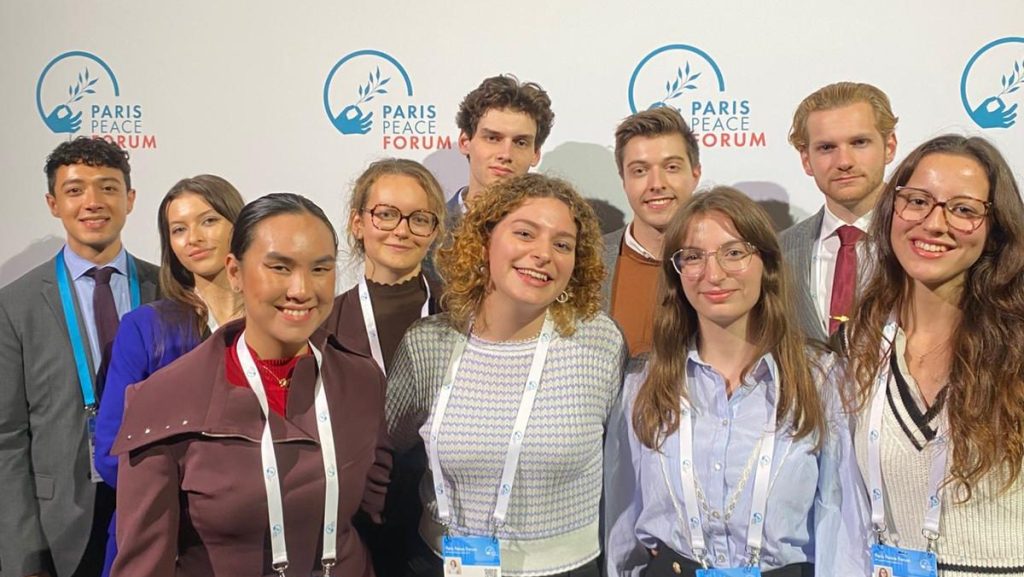Paris Peace Forum 2025
On 29 and 30 October, the 8th edition of the Paris Peace Forum was held on the theme ‘New coalitions for peace, people and the planet’. The Academy attended this major event to represent youth and citizenship in these discussions for the future of humanity.
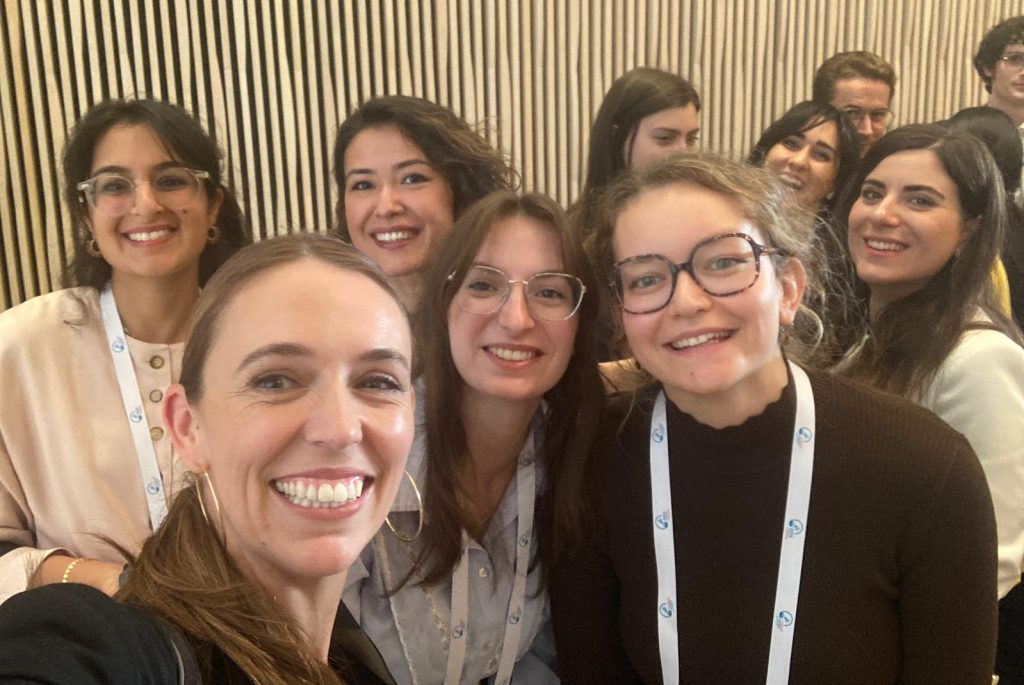
A forum for ‘reinventing diplomacy.’
The Paris Peace Forum is an ‘international event focusing on global governance and multilateralism’ held annually in Paris. The event aims to bring together a wide range of speakers: heads of state and government, NGO leaders, civil society representatives, researchers, entrepreneurs and committed young leaders, all gathered to share their perspectives and propose concrete solutions to major global challenges with a view to ‘reinventing diplomacy’. PPF President Angel Gurrià opened the forum with a speech, followed by Michelle Bachelet, former President of Chile and former UN High Commissioner for Human Rights, and Justin Vaïsse, founder of the PPF.
‘We need more multilateralism rooted in today’s realities. […] When people see that their voices matter, they are more willing to defend democracy.’ (Michelle Bachelet)
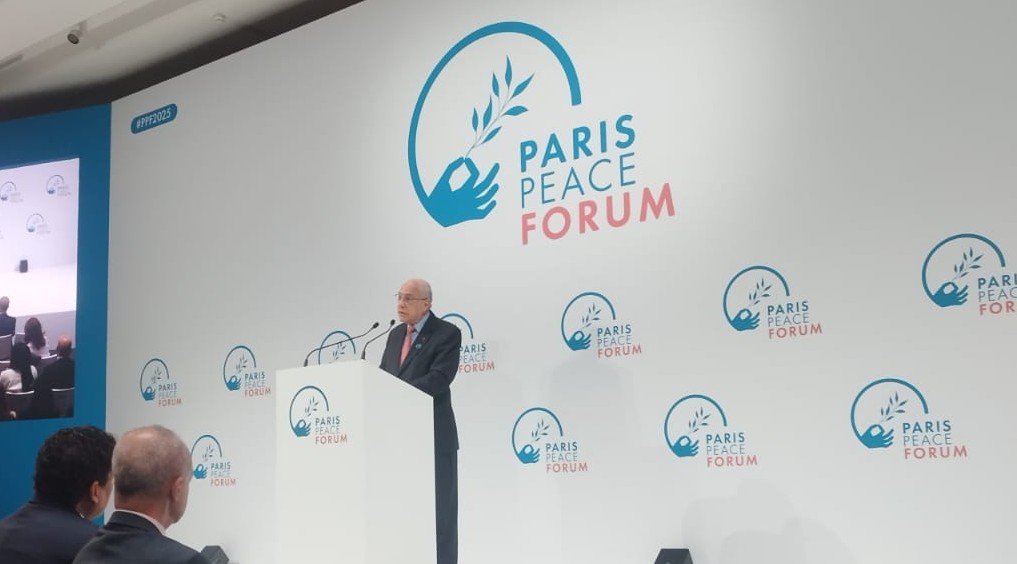
‘Coalition for peace, coalition for the people and coalition for the planet.’
With over 500 speakers and 4,000 participants, this rich event addressed all the challenges and topics covered by the theme: starting with round tables on COPs, the use of AI, and the role of women in policy-making; followed by panels on the rise of authoritarianism and the protection of democracy and civic space, as well as new developments in international cooperation, particularly with regard to climate change and development aid, and much more… The forum offers a wealth of conferences, panels and round tables. This edition also marked the 10th anniversary of the Paris Agreement and the start of COP30, which will take place in Belém.
‘Unless there’s fairness in our affairs, there will be difficulties again’ Maia, Prime Minister of Barbados
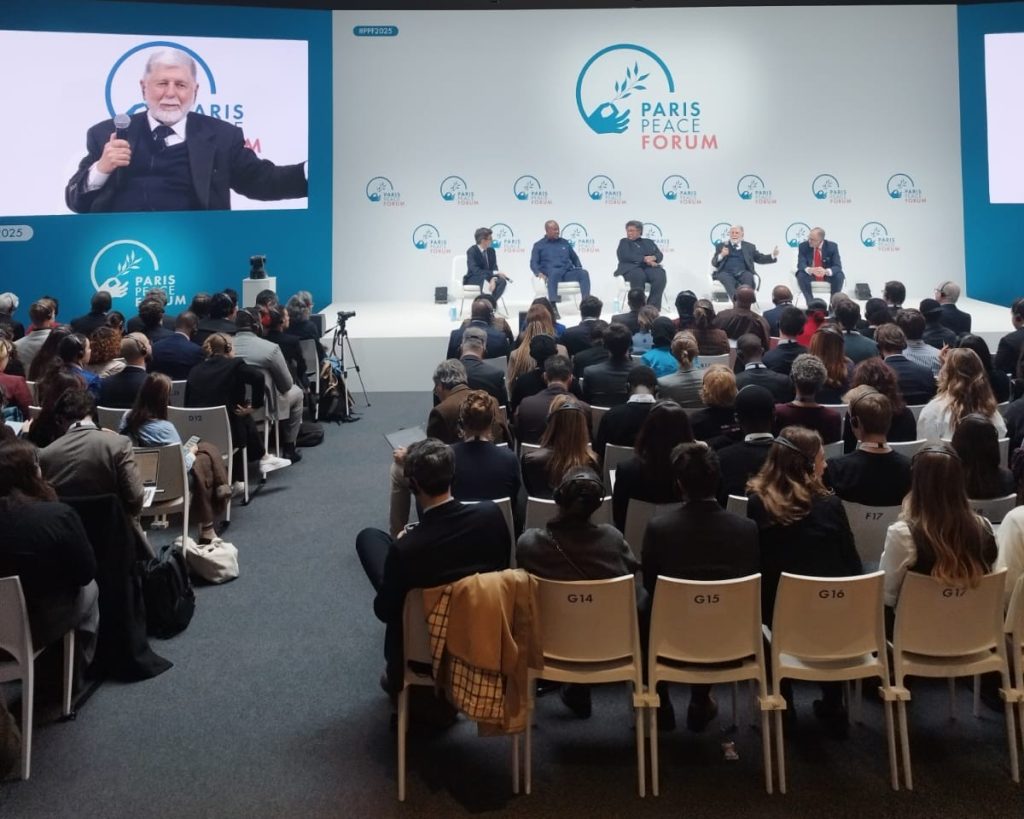
Protecting civic spaces in a digital world.
The growing use of AI poses new risks to democracy, the media and the civic spaces through which citizens express their power. AI, social networks and digital tools in general are now often misused or exploited, threatening the quality of public debate and collective trust. In response to these abuses, numerous initiatives are emerging to build a more ethical, regulated and resilient digital environment that serves the public interest. Companies such as Microsoft and OpenAI are working hand in hand with foundations such as the Christchurch Call Foundation, founded by Jacinda Ardern, and governments to build a more resilient digital future: ‘We no longer know what the facts are today. Governments themselves are uncomfortable with the idea of fighting misinformation’ (Jacinda Ardern).
‘Our public space has been invaded by the digital space’ says George Papandreou, former Prime Minister of Greece.
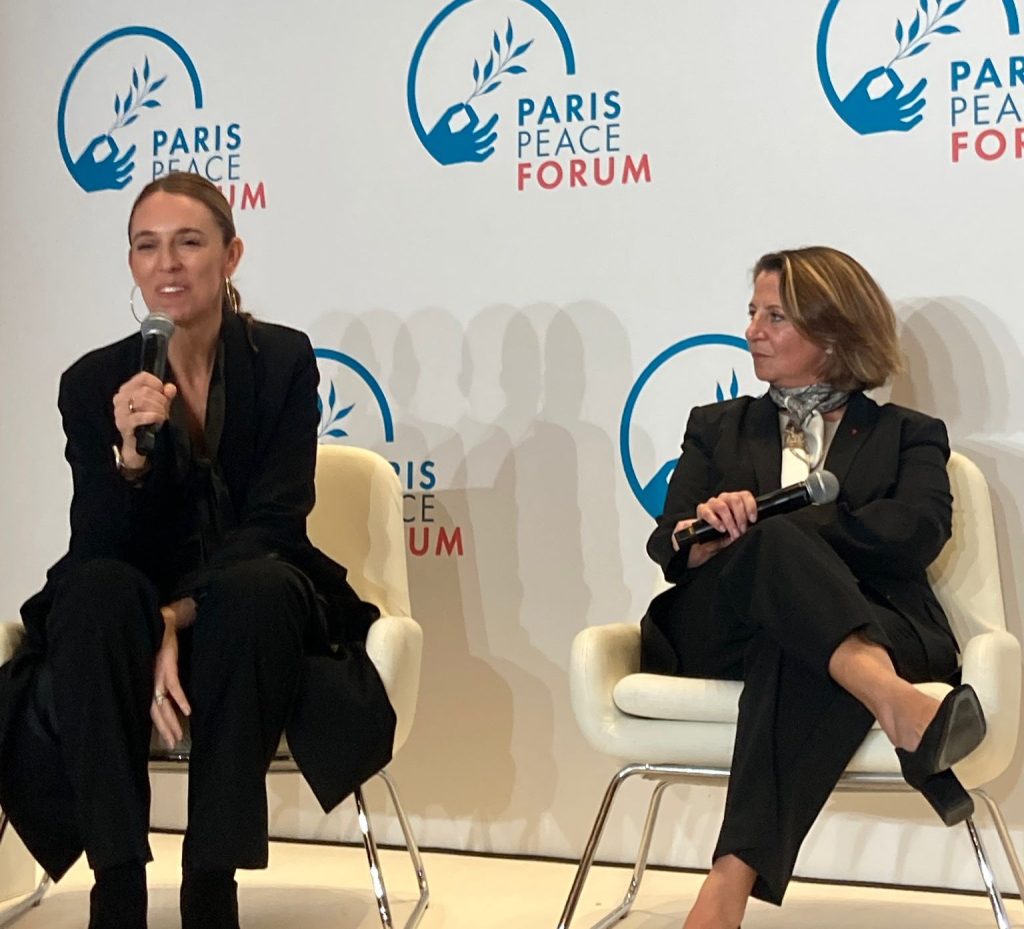
Europe in the global balance.
The second day began with a conference featuring Benjamin Haddad (Minister Delegate for European Affairs), Gunther Krichbaum (German Minister of Foreign Affairs) and Ignacy Niemczycki (Secretary of State at the Polish Ministry of Foreign Affairs) on the topic of ‘(Re)balancing the world order: can Europe make its voice heard?’ Europe needs to be more resilient, take on more responsibility and shake off its naivety. It has all the capabilities it needs to defend its interests and its territory. Ignacy Niemczycki emphasised that ‘the EU is a unique and extraordinary peace project’.
The speakers concluded on a hopeful note addressed to the young people in the audience: ‘Fight for the world you want to see, get involved!’ Following on from this appeal, Benjamin Haddad reminded the audience how ‘it is more difficult to be pro-European than anti-European’, thus emphasising the need for a strong and clear commitment to the European project.
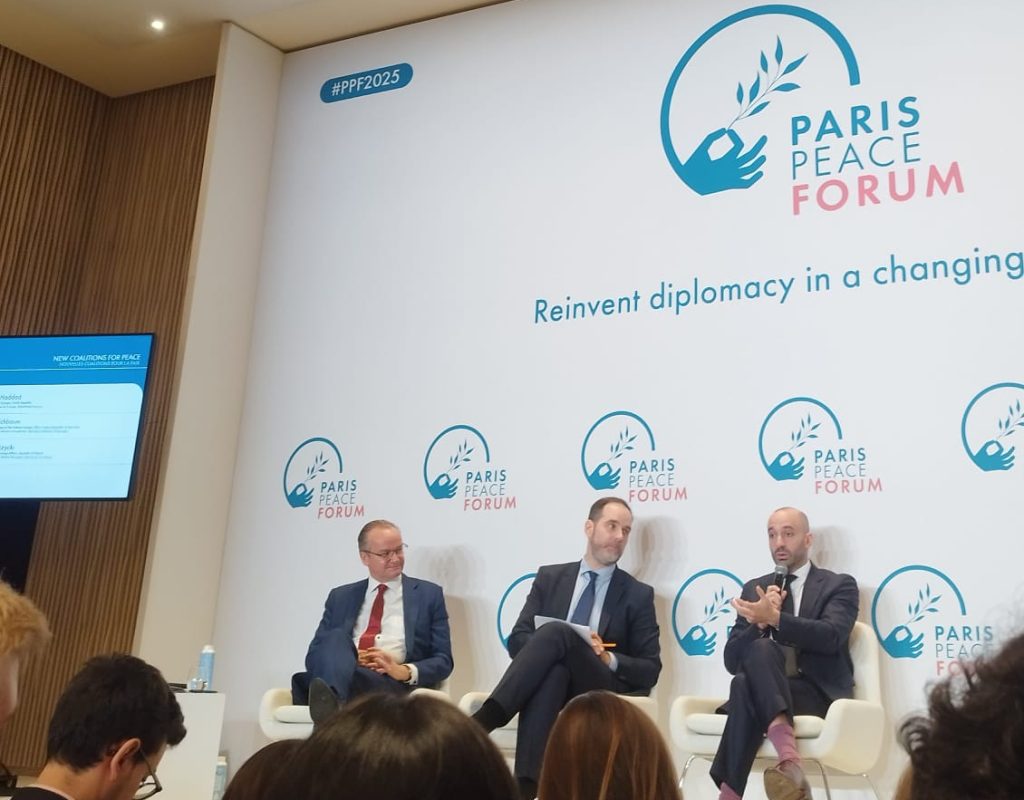
The Academy’s alumni were present:
This event was also an opportunity to reconnect with Academy alumni who continue to be committed to making the voices of young people heard and changing attitudes. One thing is clear: the voice of young people is still not listened to or promoted enough. This is also part of the Academy’s mission: to make the voices of young people heard in public debate and enable them to flourish fully in their role as European citizens.
